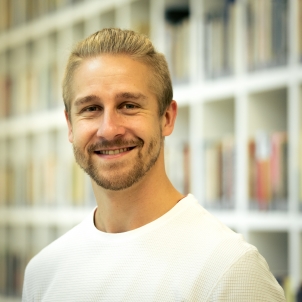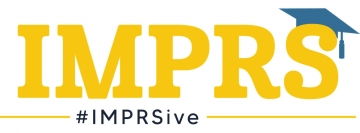Adrian on interdisciplinary work
Name: Adrian Jodzio
Department: Neural Dynamics of Language Production
Research: The time-course of word production
Started at the IMPRS: 2018
Nationality: Canadian, Polish
It is important to learn to openly communicate and share your thoughts with your research team in order to get the most out of your doctorate.
How did you come to pursuing your research topic in Nijmegen?
After finishing my bachelor’s degree in Kinesiology back home at Western University, Canada, I decided I wanted to leave home and complete my master’s degree somewhere in Europe. I studied the entire body and all its workings during my bachelor’s but I wasn’t satisfied and wanted to learn more about the brain. So I applied to Neuroscience Master’s programs all over Europe. I was accepted to the Cognitive Neuroscience Master’s at Radboud University and the Donders Institute, and since they were the first to offer me entry, I took it as a sign and packed my bags for a Dutch city I had never heard of. Although I specialized in memory and plasticity during the Master’s program, I was working as a student assistant in a group working on language production. With a twist of fate, I was offered a PhD position that would use TMS to investigate the time-course of word production, both of which I knew nothing about. Again, taking this as a sign, I accepted and thus came to pursue my current research topic.
What are some of the highlights of your doctoral life so far?
The interdisciplinary community is something that really sticks out for me here in Nijmegen. My contract is at the MPI, my working desk is at the Donders Center for Cognitive Neuroimaging and my supervisors are from the MPI and the Donders Center for Cognition. When doing research here, there is a tremendous amount of expertise, knowledge and comprehensiveness of research topics that just about anything is possible. If you don’t have experience with a research method or knowledge on a specific topic, someone else does. There is an enormous potential to collaborate on research projects and the possibility to run your research without worrying about lack of expertise or equipment.
What advice do you have for peers or those considering doctoral studies?
My one piece of advice is to learn to communicate with your research team. Upon starting my PhD I began to realize that during my Master’s internship I never told my supervisor that I was struggling or that I needed help, and thus I never received it. Even now, I hear stories of fellow PhD students struggling and at odds with their supervisors where the main issue is a lack of communication. If you wish to make the most of your doctoral training then you must learn to communicate. Don’t tell your supervisor you can’t do it or you don’t get it. Tell them about the hours you invested googling and searching for the relevant material, about the progress you have made, where exactly you are getting stuck, what you need help with and how they may be able to help you out. Don’t just mention that you want to go to a conference. Tell them why you want to go, why it would be a great opportunity for you and how you would benefit as a researcher. It is important to learn to openly communicate and share your thoughts with your research team in order to get the most out of your doctorate.



Share this page